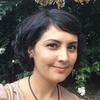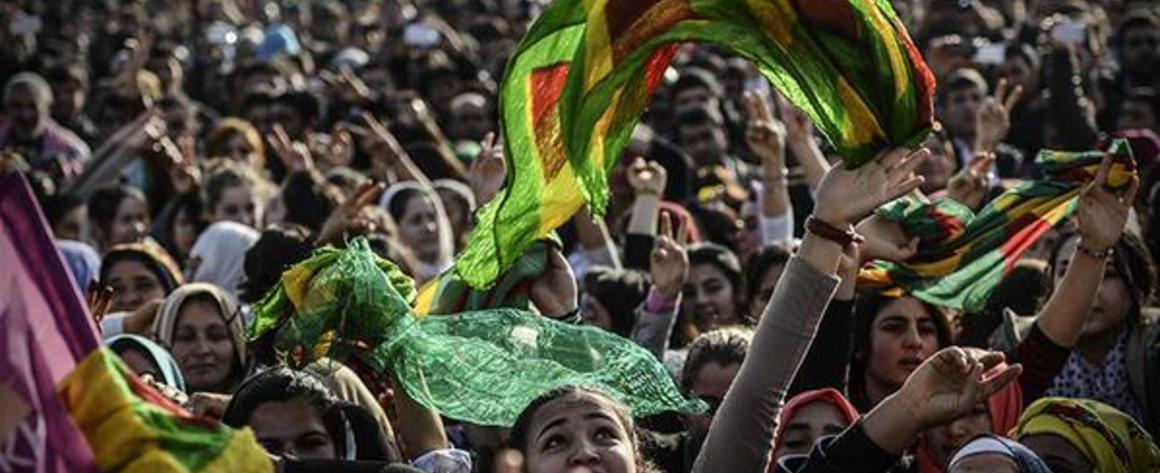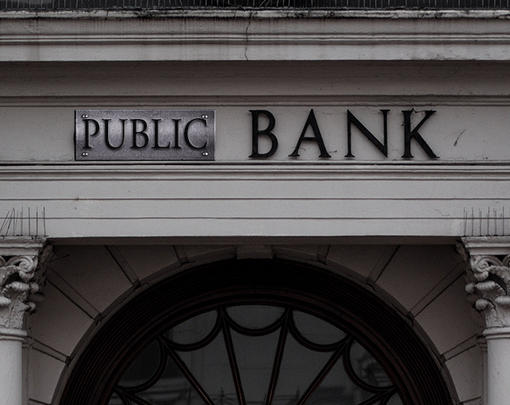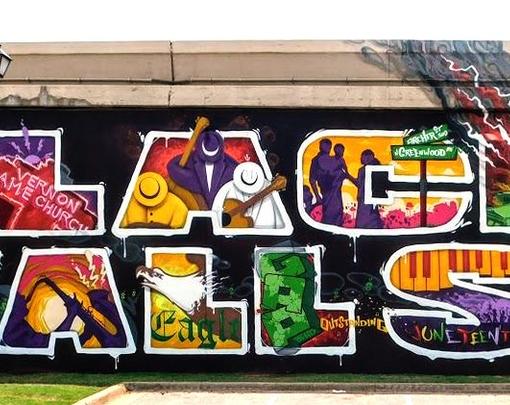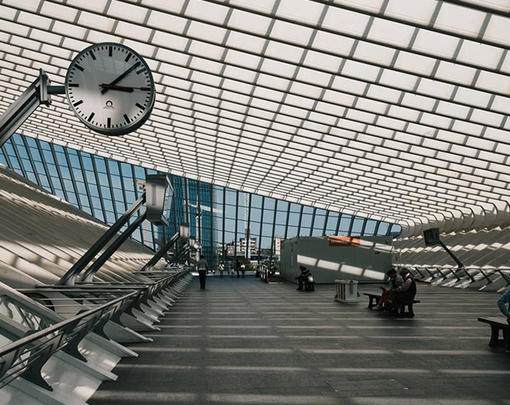We asked Ruken Isik, currently working on a PhD exploring the struggles of Kurdish women, to help us understand what Rojava can teach us about building gender equity into the next system. In what follows, she fills in the historical context around feminist organizing in Northern Syria and traces the innovative practices and policies developing on the ground, as an introduction for two interviews she conducted with YPJ (Women’s Protection Unit) commanders Meryem Kobani and Roza Haseke.
The struggles of Kurdish women in Rojava Kurdistan (Northern Syria) became known to many people in the world during the brutal attacks of ISIS against the city of Kobane in northern Syria on September 15th, 2014. While Kurdish men and women were trying to defend the city from ISIS militia men with limited ammunition and inadequate weapons, compared to sophisticated weapons in the hands of ISIS, Kurds worldwide took to the streets to be voice for Kurds in Rojava and Kobane. From the battle to defend Kobane onward, Western media and politicians have started to talk about the brave Kurdish women who are fighting against ISIS and its brutal treatment—including enslavement—of women.
But a question still resonates in many ears: how do Kurdish women join the fight against ISIS in such numbers, and why are women on the forefront of the struggle? What is the history behind this remarkable departure from the norm, and what can advocates for systemic change and feminism learn from Rojava?
The answers to these questions lie in the Kurdish political, social, and military organizing in the Middle East. Kurdish women in Syria have been organizing themselves politically and militarily under the roof of ‘Yekitiya Star’ which is an umbrella organization of the Kurdish Women’s Movement in Syria/ Rojava, since 2005. According to Yekitiya Star member Ruken Ehmed, as all sorts of social organizing were banned by the Syrian Regime, women were not able to organize themselves—any social organizing had to be conducted under the roof of Ba’ath party. For example, women’s right organizing was done under the name of “Ittihad Nisa” (Women’s Movement) organizing that belonged to the Ba’ath Party. Given this repressive context, right before the Syrian uprisings broke out, many Kurdish politicians were incarcerated in Syria’s notorious prisons, including female Kurdish activists.
When Assad’s regime forces left Kobane (Ayn-Al Arab in Arabic) in 2012, the Kurds took control of the city. Since then they have been fighting for the institution of a new form of self-governance in Rojava, which took on a novel dimension with the establishment of the autonomous cantons in January 2014.
Kurdish women have been at the forefront of this struggle, and have made it their own. The women I have interviewed insist that they don’t just fight because they are Kurdish, but also because they are women—for them, the struggle is also against male domination within the Kurdish community and in the larger Middle East. The achievement of gender equality is one of the most important aspects of the ongoing struggle in Rojava, and an unprecedented example in the Middle East.
For Kurdish women in Rojava, it is important to seek ways to make sure that women are not just instrumentalized for the national cause during the revolution and sent back to homes afterwards—as seen in the backlashes that women faced after the revolutions in Vietnam, Russia, and France. Therefore, Kurdish women have started to organize themselves in fields that would enhance the status of women in local society. For instance, building new educational institutions has been a way to engage not only women but also men for long-term social change. The co-presidency system with one man and one woman that is implemented in all institutions at all levels is another important marker for long-term social change.
Intellectual inspiration
The grassroots social organizing in Rojava (Syrian Kurdistan) is inspired by the philosophy of captive Kurdish leader Abdullah Öcalan, who has been held in solitary confinement on the Turkish prison-island of Imrali since his capture in Kenya in 1998. While in prison, Öcalan’s philosophy has undergone significant development, moving beyond a fairly orthodox theory of national liberation grounded in the Marxist-Leninist tradition to a much more ambitious frame rooted in a renewed conception of freedom, democracy, and community. According to Jihad Hammy and Eleanor Finley:
One of the major tasks of this philosophy is to overcome dichotomies based on the division of subject and object. This division is found in such binaries as black/white, East/West, nature/society, and so on. Domination and exploitation quickly arise from such thinking as the active and intelligent subject (white, West, society, etc.) is separated and raised above the passive and inferior “object.” In order to move beyond hierarchy and domination, a new way of thinking is necessary to recognize the unity in diversity of social life. In this methodology, as well as many other topics, Öcalan derives from the work of political philosopher Murray Bookchin, who was the first major Leftist thinker to anchor revolutionary politics in confederal direct-democracy.
Jineoloji Institutes
This deep critique of the origins of domination has clear feminist implications—one of the main proposals of Öcalan’s paradigm is to create a gender equal society. He insists that the transformation of women’s position in society is very important for transforming society as a whole: “The level of woman’s freedom and equality determines the freedom and equality of all sections of society” and “democratisation of woman is decisive for the permanent establishment of democracy and secularism.”
In order to create a democratic nation, Öcalan maintains:
We firstly need to know how to win within the ideological arena and to create a libertarian, natural mind-set against the domineering, power hungry mentality of the male. We should always keep in mind that the traditional female subjugation is not physical but social. It is due to the ingrained slavery. Therefore, the most urgent need is to conquer the thoughts and emotions of subjugation within the ideological arena.
Enacting this critique, women in Rojava not only joined the armed ranks of YPJ (Women’s Protection Units), but opened Jineoloji Institutes and women’s centers all over Rojava to educate women ideologically for a democratic nation. The system which existed in Rojava under the Syrian regime was one where women were largely in not entirely absent from the economy, education, defense, and social organizing. The Rojava Revolution deconstructs the former system and created alternatives first of all by establishing the presence of women in every sector in which they were formerly absent.
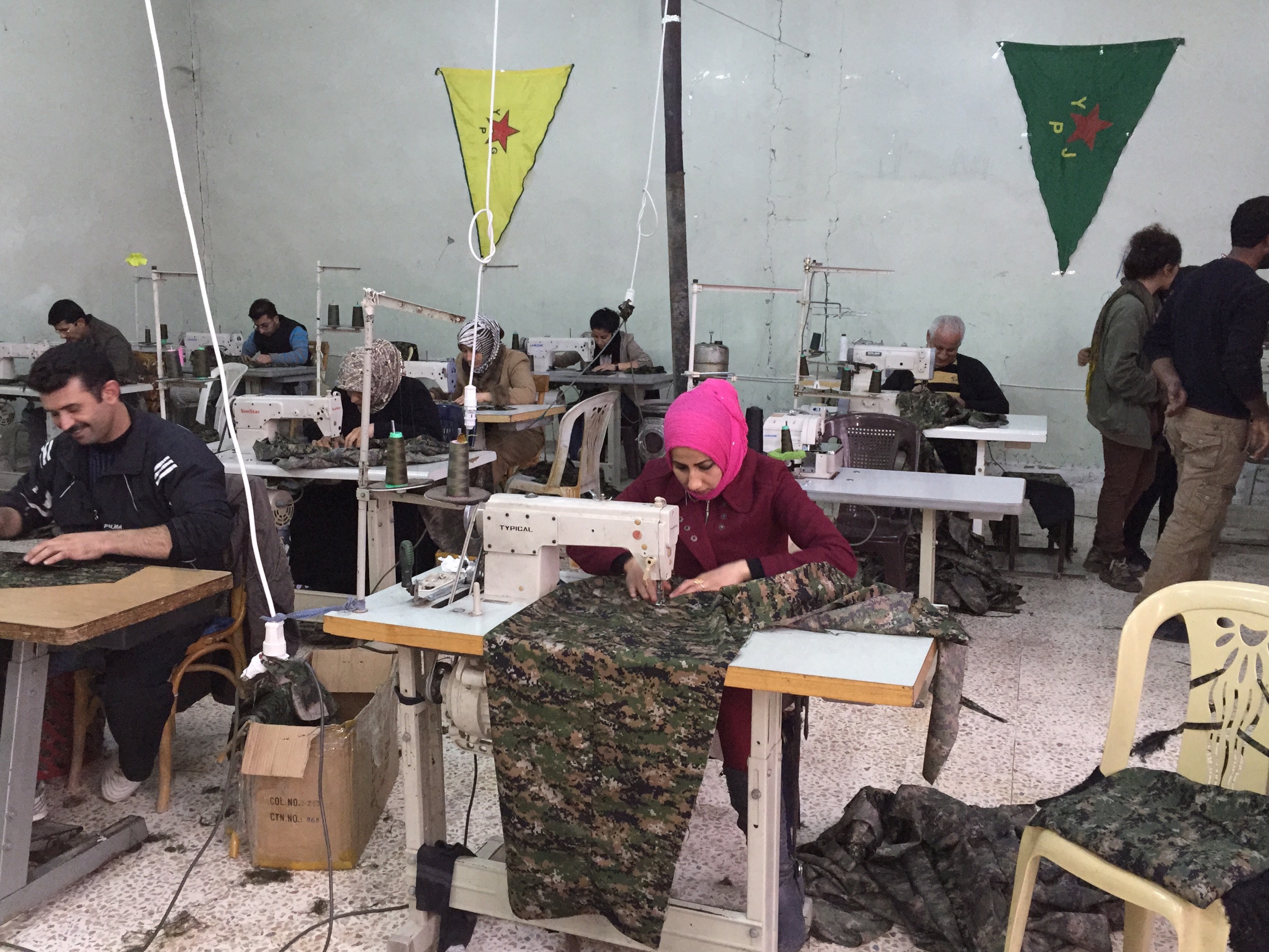
Autonomy and gender equity
In a recent article, academic and writer Nazan Ustundag (2016) summarizes Öcalan’s ideas on modernity and the need to decentralize power:
For Öcalan, any society needs to fulfill the functions of nourishment, reproduction, and self-defense in order to survive. However, during the formation of capitalist modernity, state, capitalist classes, and men confiscated the means of nourishment (i.e., production), reproduction (i.e., care), and defense (i.e., violence) from society, the poor, and women. In turn, dispossessed people have fought against capitalist modernity and established a history of democratic modernity. A revolution needs to rely on such a history and bring it into light while also developing institutions that constitute those ethical subjects who will build a moral and political society that values the ecology, women’s freedom, and democracy. Such a society must continuously defend itself against the emergence of centralized power and state-ness.
In one of my interviews with Fatma Lekdo, the Minister of Afrin Canton’s Women Ministry, she said the cantonal system was very much inspired by – and an application of – Öcalan’s ideology of democratic autonomy. The constituency of the Rojava Autonomous Region does not include or recognize Kurds only, but also Armenians, Syriacs, Arabs, Turkmens, and Ezidis. The idea of democratic autonomy is directly opposed to the ideology of the nation-state, especially as in the Middle East, where it is tightly bound to ideas of cultural and ethnic homogeneity. The new system in Rojava is more of a multicultural, multilingual, and multireligious system that is designed to “allow the legal participation of individuals who will be able to mobilize and organize along the lines of ethnicity, religion, gender, class.” It is a system of self-governance that rejects the model of centralized administration. This is the model of self-rule advocated also by the Kurdish movement across the border in Turkey.
Women in Rojava believe that this system can and does enable them to organize, and to participate in all decision-making processes. There are 22 ministries in each of the local canton governments—and a women’s ministry is one of them. Each canton has a council of ministers, which is run by one male and one female co-leaders, and they have three deputies, chosen to represent local diversity. Each canton has its own defense system, and women in that defense system have a separate military organization: these units are the YPJ, which is the acronym for Women’s Defense Forces. In the cantonal system, marriage at a young age is prohibited and a gender quota of 40% is implemented in all institutions and administrations. Just recently, one of the academies in Qamislo started offering Women’s Studies courses.
In 2014, a group of women including Kurdish and Turkish female MPs visited Rojava. Among the group was also a Turkish journalist, Pinar Ogunc, who, impressed by what she had observed in Rojava, wrote that women are now traffic police, stopping male drivers and looking at their IDs—even this will have an impact on society. Women judges also look at the women related court cases.
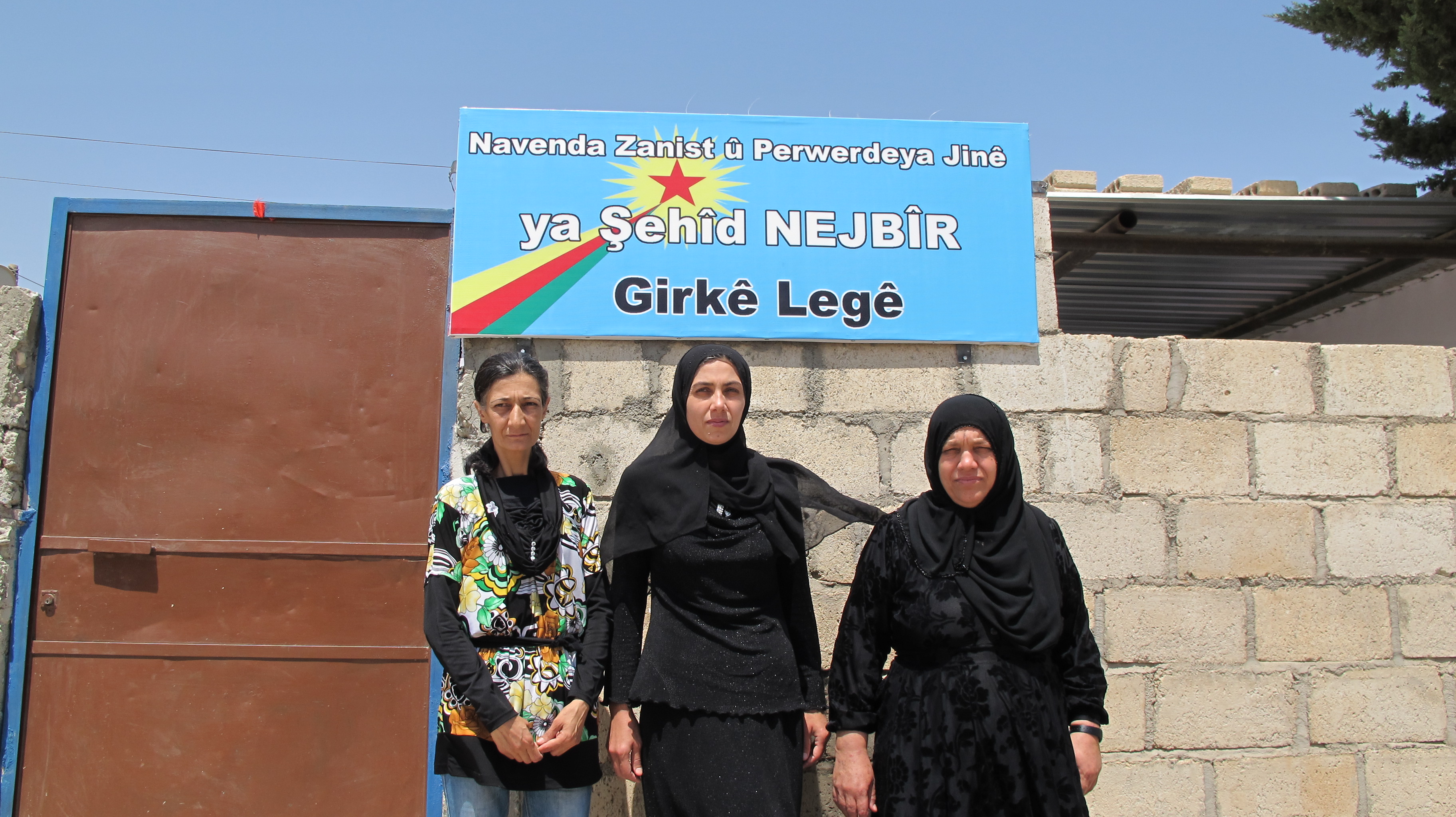
There are also women’s shelters established in each city in Rojava where women lawyers advocate for women confronting violence; be it political, social, or domestic. There are centers called Mala Jinan (in English, “Women’s Houses”) which began to be established in 2011, where women seek help when they face problems. Violence against women is the primary issue these houses deal with. These houses also function as centers of mediation or dispute resolution centers—if the problems cannot be solved in these houses, only then are they taken to the courts.
In my interviews with senior YPJ members Meryem Kobane and Roza Haseke, they both underlined the importance of Abdullah Öcalan on the Rojava Revolution and the space that has opened for women within it, dating back to 1979, when he visited Syria for political organizing.
These women fighters prefer to call themselves “protection units.” And they say, “The revolution did not change women’s life in one night, but gave them visibility, women are now visible!” They say female fighters were among the first martyrs of Rojava; they fight to protect their land and their people. Yet in order for women to be recognized as agents in society, the whole system needs to be changed. They say it is important to recognize that women are not just fighters in Rojava, as it is covered in the Western media, they are indeed in all fields.
These women define self-protection broadly, not limited to participation in the military self-defense of the autonomous cantons, but as protecting themselves against male domination and ethnic oppression, protecting their thoughts, language, and cultural rights. For the women of Rojava, these all need to be protected, and if you do not protect yourself, you will be oppressed and attacked easily. Self-protection should not just be understood as taking up arms, but organizing and struggling for your social, political, and civic rights, and the right to protest.
The change underway in the autonomous Kurdish regions of Syria should not be perceived just as a shift of powers from the control of one government or ethnicity to another, but as a social transformation, one which is enabling minorities to have a say, and a share in the dynamics of power as a more equal society is constructed. In the larger region, there is a backlash against women’s rights—and Rojava is a promising example of a pathway to gender equality that the Western world should support. The West always presents itself as deeply invested in bringing change and democracy to the Middle East. Yet the Kurds, together with the other ethnic groups now administering themselves for a better future, have been historically and continue to be ignored by the international community, which has turned a blind eye to the Kurds in general and to Kurdish women in particular. As they work to build a society grounded in a systemic commitment to gender equity, the women in Rojava want to be in dialogue with international women’s organizations and share their experiences.
Interview with Meryem Kobani (YPJ):
Ruken Isik: How old are you? What is your education?
Meryem Kobani: I am 36 years old and graduated high school.
How and why are you involved in fighting/ war? Can you tell us about your experience?
I joined the fighting in 2011 with the start of the Rojava revolution (Western Kurdistan-Northern Syria). I, Meryem Kobane, joined the fighting as a woman to establish a politically correct and a moral Middle East. I wanted to take responsibilities in that regard. When we, women of Rojava Kurdistan, first started we had small teams and then we formed battalion of women. First, we started in Cizire, a canton of Rojava Kurdistan. I fought in Kobane for two years and I worked as one of the commanders of YPJ (Women’s Protection Units).
What were you doing before the war?
I was an ordinary, normal Kurdish girl who grew up in a patriotic Kurdish family, I was raised knowing what happened to my people and my Kurdish identity was shaped in the family. The struggle for Kurdish freedom has always been a priority in my family. From the childhood, I grew up with the stories of Kurdish people, women revolutionaries like Sakine Cansiz, Leyla Kasim. The oppression of Kurdish people, the colonization of Kurdistan and especially the oppression of women was something I knew from the childhood. Women were not allowed to have agency, to know themselves and their capabilities. At a very early age, I heard of women revolutionaries like Beritan, Berivan and wanted to have a goal in life like these women did. I wanted women to have agency and will, and to build a free identity for themselves.
So, you are saying that these revolutionary women have an impact on shaping your agency?
Right. One of the most important thing that caught my attention as a child was how these Kurdish women were fighting in the mountains, it was so interesting to me. These women inspired me. When I followed and learned more about these women, their fight, how these women were educating themselves, learning women’s history, free women, these attracted my attention. It was interesting. I was thinking how women can do all of these things, how they can think all of these that I just said. And the jailed Kurdish leader, Abdullah Ocalan’s perspectives on Rojava Kurdistan was also important and with these perspectives the philosophy of freedom in Rojava has gone further.
Are/Were you married?
I am not married, my dream is a free identity and I also want to have a knowledge on history of Kurds.
What is the meaning of war for you?
The war as a concept itself is violence. In Mythology when Piramutu and Marduk fought, and when women were subordinated at that time, war started from there, it comes from there. War is a culture against women. War culture reminds me the oppression of men over women.
There are different types of fighting, fight to defend yourself, fight to know yourself, fight to oppress, colonize others, fight to construct, fight to establish, in short fight/war is a concept that you can infer many meanings. For me war/fight has two meanings; one is self-protection and second is oppression/to oppress. My thoughts of war/fight is shaped by self-protection philosophy. My fighting is self-protection, not to attack. And armed fighting is something different too.
Do you see war as self-protection?
Of course, it is self-protection for me. And the thing that really caught my attention was how women could lead themselves and build a free identity. And not only the women who fight in Kurdistan with me, but the women around the world who fight for their freedoms have always been interesting to me. There is self-defense/protection in nature itself. All living creatures needs to protect themselves. Especially women who are oppressed by men, and patriarchal mentality, to have a say in their own life, to belong to themselves they need self defense/protection. But as I said, there are so many different meanings of fighting. An animal defends/protects itself in order to live.
When you were child, you had friends, neighbors. Do you have any of these people that you know in the war?
Two brothers of mine and I joined the struggle. Both of them martyred. Again a cousin of mine martyred too. My family has always been ready to take responsibility in any parts of Kurdistan (Iraq, Iran, Turkey, Syria). My family fought against oppression.
When do you see yourself powerful?
When I see that enemies are are attacking severely, that moment I see the power of women. Especially, the war in Kobane, ISIS-ISIL attacked brutally, barbarically. But there were these young women fighting courageously, heroically next to me, shoulder to shoulder we fought against these savages. And I am sure, the stories of epics can be written on each one of these women. I was feeling so powerful when we fought together with these women against ISIS-L.
I want to share a memory of mine from the Kobane war, the fierce fighting. I was asked by a reporter why we sound so hopeful. I told them I am hopeful because I do not see myself just one woman. One part of me is woman in Afghanistan, the other Pakistan, German, Persian, Arab, Turkish. I told them all women in the world are with me when I fight against these brutal men. In short, I never felt that I as Meryem Kobani fight alone in this war. How far we women might seem from each other around the world, we feel one another. As an individual I came to that conclusion that we women that suffered in the hands of men’s oppression, especially in the capitalist system that also oppress women, women who fought next to me fought for these women as well, died for them too.
There are peace movements, and women are involved in these movements? What do you think about peace and efforts?
Well, in fact fighting is done for peace. When people are oppressed, when there is no peace, no rights for people, it is the time people fight so that they can reach to peace. So, in that sense, I see my fighting as a fight for peace to protect our rights. There are international peace organizations, movements that work to unite world and end the oppression yet they are weak. I see their work very important, honorable, meaningful and I congratulate their existence, yet only establishing organizations is not enough. They need to do more universal work so that they can play a big role across the world. For instance, now there is war in (Turkey) Kurdistan, (Syrian) Kurdistan and other parts of the world. I wish especially women in these peace organizations, the wise people, people who wants peace should work more to end the injustices across the world.
Do you have any regrets?
I never have regrets for taking part in this struggle. My only regret is that, why we could not reach more women. I think each woman is a treasure herself, they have so many capabilities but they need to know themselves. I always tell myself that I wish I could reach these women. I never regret. I always want to protect women’s rights. A woman can be American, Pakistani etc, that is not a problem, our sorrows are the same. Even earlier in my life I always wished for a women’s movement that I could be part of it. And my dreams came true. And with the Kobane War, Women’s Protection Units (YPJ) have become universal in the world. As long as I live, I would never regret this revolution and struggle. And I want to continue in that path, freedom movement, and make myself come through in this freedom movement. And lastly, we are grateful for the philosophy of Abdullah Ocalan that has an important impact on Rojava Kurdistan.
Interview with Roza Haseke (YPJ):
Ruken Isik: Can you tell a little about yourself, when did you start fighting, how did you decide?
Roza Haseke: My name is Roza Haseke, I am 32 years old and I went to high school.
When the war started in Rojava/Syria, our identity was not that strong. We knew that we were Kurdish, our language was forbidden. Our language was not allowed in school and we could only speak Kurdish at home. I grew up in a society where Kurdish reality was denied, I grew up with all these contradictions. I was going school to learn things but at the same time my people were denied. In the society that I grew up there were not only Kurds, there were Armenians, Assyrians, Christians, Arabs as well. In the society women seemed to have rights, but these rights were controlled by men. For instance in order to go outside, you had to have your father, brother, or a man from the family with you. No matter how your family was progressive the things that you could do as a woman alone were so limited. The wrongdoings against women cannot be accepted, the attacks against women were something I saw in the society and these actually get me to think about women’s lives, I realized the contradictions in the society at an early age.
In the past years there were wars in Libya, Tunisia, Egypt. We were reading things on these wars, trying to understand what is going on there. My life was normal, ordinary. There had been a massacre in Kurdish city of Qamislo in the past, we have seen the brutality. When the war started in Rojava we were not that powerful as women, when war started we thought, we need to get ready. We need to give struggle, fight. We as women need to get ourselves strong and take part in that war. We need to give our lives a chance to live. First war started in Til kocer and then spread to other parts of Rojava Kurdistan. We as women also started to take part in the struggle.
What is the meaning of war for you? What does the word “war” stand for to you?
When we first started we had some questions in mind, like how are we going to use weapons, fire arms, kill someone. It was scary, because we had not been taught in this regard, we knew nothing about war. As a woman I had this fear but than there was the reality, if you do not kill you will be killed. This is the reality of the war. So, we had to strengthen ourselves. But the war that we are in is to protect ourselves, people of minority are oppressed, denied. Women are also oppressed, they are made to be in need of men. Whatever they think, their agency, their reality is under men’s control. We, as women, need to break the mentality that controls women. We need to know ourselves, know our agency, our strength, we need to protect ourselves. Even now, families are bringing their daughters to us, trusting us YPJ (Women’s Protection Units). They want their daughters to learn how to protect themselves, because they also know that if you do not protect yourself than you will be extinguished. War is something so cruel, brutal. Pregnant women got massacred, they kill people without any reason. The war that we are involved in with ISIS, the brutal people, very horrible, inhuman, we need to extinguish them. They kill children.
There is a serious threat especially on women. For instance, ISIS believes if they are killed by women they will not go to heaven. Women have become their number one fear. We scared them so much. Women are not the women [we were] before, we do not need protection from men, we can break the oppressive male system over women. We have strength.
Why do you think women that you know, maybe even you that you grew up with, are not involved in war or fighting?
The reality is that all people should protect themselves. The same is valid for women too, they need to know how to protect themselves. Yet, not all the people can think same, act same, if they do so, it would be against reality, it is impossible to have one thought. We are all different and have different views about life. This is my choice, I chose a life like this. I am angry about the role that is assigned to women in the society in all parts of the life. And I want to empower women. The other women may not have been as lucky as me to see the contradictions in the society against women. At an early age, I saw the relationship of my parents in the marriage, or my elder sisters’ marriages, when I saw women in the TVs, they were all assigned roles that were making me angry. I was telling myself that I need to struggle for these women. I need to empower them and get them know themselves, educate themselves. Women who have not yet been aware of their strength, do not know themselves yet, the women who have not been lucky like me to know themselves. Women who have not sought for their rights yet. I want to struggle for these women. I want to share this with all women, I see it as a duty. And women face more difficulty in war.
When do you feel yourself powerful/empowered?
When I see women have become stronger, and grow their struggle in the war, when I see powerful women around me, it gives a big morale, big strength, believe in oneself, agency, a strong will. When I see young women, inexperienced, not that much educated yet they are ready for a big sacrifice for their land and people. That moment I see myself empowered, powerful. I feel them next to me, they give me strength. And again, old people who have not left their land, try to protect it with the last bullet that they will use to end their own life so that enemy should not be happy to kill yet another person. These are all strength. Again women, who left their young kids on the other side of the barbed wires with their relatives in the Turkish border and maybe have nothing to do in terms of war but came here just to wash our clothes, cook for us, heal the wounded. All these women are heroines, we can write epics about them.
When the enemy attacked this people, they only had a strong will to fight – nothing else – and that stopped the enemy.
What do you think about the peace movements?
The existence of peace movements gives me strength, it is very important for us. They struggle to stop the war. Yet, I see their efforts not enough. For instance, there are wars out there, and how do they respond to that. I think their efforts are not strong. Women who fought in Afghanistan, Libya, Egypt are not different than women in Kurdistan/Rojava (Syria), our pain is the same, our struggle for peace is the same too. For that reason, the peace efforts should be equal to all people. When we were fighting in Kobane, millions of people all over the world rallied for us, that means we do right, we struggle for peace and these people rallied for us, supported us. Yet, the peace efforts are not enough against this ugly war.
Pacifist, militant?
I have responsibilities, I cannot live without doing anything. I need to stop this war and protect ourselves. I wish I could do more in this struggle. There is a war in Syria, and in the neighboring countries. There are so many things to do.
I am one of the comrades in YPJ, but we do not necessarily fight and stay in combat. We educate ourselves, educate other women, people and involve in social work. Wherever people needs us, we work there. We do political work too.
